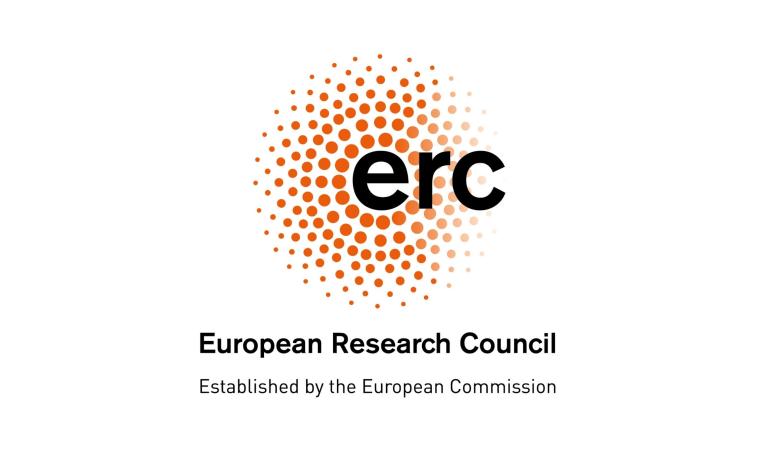European Geosciences Union (EGU) General Assembly 2017

The ERC will be present with a booth at the EGU exhibition, with a session and flash info-sessions organized on the spot. More information will be added soon.
The European Research Council (ERC) supports excellent investigator-driven frontier research across all fields of science, including all disciplines of the Earth, Planetary and Space Sciences. The ERC offers research grants of up to 3.5 Million Euros for individual scientists and up to 15 Million Euros for projects with two to four complementing investigators. ERC calls for proposals are open to researchers from around the world, who are planning to carry out their research at a host institution in Europe (European Union member states and associated countries)
COURSE: HOW TO WRITE A SUCCESSFUL ERC GRANT PROPOSAL
-
Convener: Susanne Buiter
Co-Convener: Claudia Alves de Jesus Rydin - Tue, 25 Apr, 13:30–15:00 / Room -2.91
-
Session details:
This workshop provides background and tips for Early Career and Advanced Researchers planning to apply for an ERC Grant. An ERC Executive Agency member, two ERC grant winners, and a review panel member will share their experiences in the ERC programme, proposal writing, interviewing and reviewing.
GREAT DEBATE IS OPEN SCIENCE THE WAY TO GO?
- Conveners: Claudia Alves de Jesus Rydin, Susanne Buiter, Bárbara Ferreira
- Thu, 27 Apr, 15:30–17:00 / Room E1
-
Session details:
Many scientists support Open Access publishing of their manuscripts. But is support for open access to the underlying research data as easy to achieve? Open Science is the general move towards open access to research results funded with public money. Several funding agencies are including Open Science as a requirement in their grants, among others the Marie Skłodowska-Curie Actions and actions funded by the European Research Council. Open access to research data will allow broad usage of data across disciplines. Since public money was used to pay for the research, why should data only be in the hands of a few? Open Science will also allow open verification of research results. But on the other side of this openness are questions related to the protection of scientific information, Intellectual Property Rights, privacy concerns, and security of data. This debate aims to highlight the pros and cons of Open Science and discuss the potential consequences to the scientific community. -
Opening remarks:
- Prof. Jean-Pierre Bourguignon, European Research Council (ERC) President
- Prof. Barbara Romanowicz, Collège de France, Institut de Physique du Globe de Paris
- Dr. Kerstin Lehnert, Lamont-Doherty Earth Observatory, Columbia University
EUROPEAN RESEARCH COUNCIL – BEYOND THE FIRST TEN YEARS
- Convener: Claudia Alves de Jesus Rydin, Rosaria Carbone, Nicolas Sifakis
- Thu, 27 April, 19:00-20:00 / Room L7
-
Session details:
ERC President Jean-Pierre Bourguignon will give the opening speech on this session and it will be an opportunity to get a flavour of the ERC projects funded in geosciences as well as an overview of the major achievements. All researchers interested in receiving an ERC grant are encouraged to attend.
PROMOTING AND SUPPORTING EQUALITY OF OPPORTUNITIES IN GEOSCIENCES
- Convener: Claudia Alves de Jesus Rydin
- Co-Conveners:Katharine Cashman , Bárbara Ferreira , Mary Anne Holmes
- Oral Fri, 28 Apr, 13:30–17:00 / Room L4/5
- Poster Attendance Fri, 28 Apr, 10:30–12:00 / Hall X4
-
Session details:
Following last year's success, this session will be exploring reasons for the existence of underrepresentation of different groups (cultural, national and gender) by welcoming a debate with scientists, decision-makers and policy analysts related to geosciences.
The session will be focusing on both remaining obstacles that contribute to underrepresentation and on best practices and innovative ideas to tackle obstacles. Contributions are solicited to address: - Recommendations to new and innovative strategies to further overcome barriers
- Examples of host institutions initiatives
- Specific funding schemes,
- Networks that work,
- Mentoring programmes,
- Best practices and successful strategies to overcome the barriers, including:
- Perceived barriers to various sorts of inclusion (personally, institutional, cultural, etc.);
- Concrete examples of imbalance representation preferably supported by data (namely awards, grants, high-level positions, invited talks, etc.)
- Role models to inspire and further motivate others (life experience and/or their contribution to promote equality, etc.)

